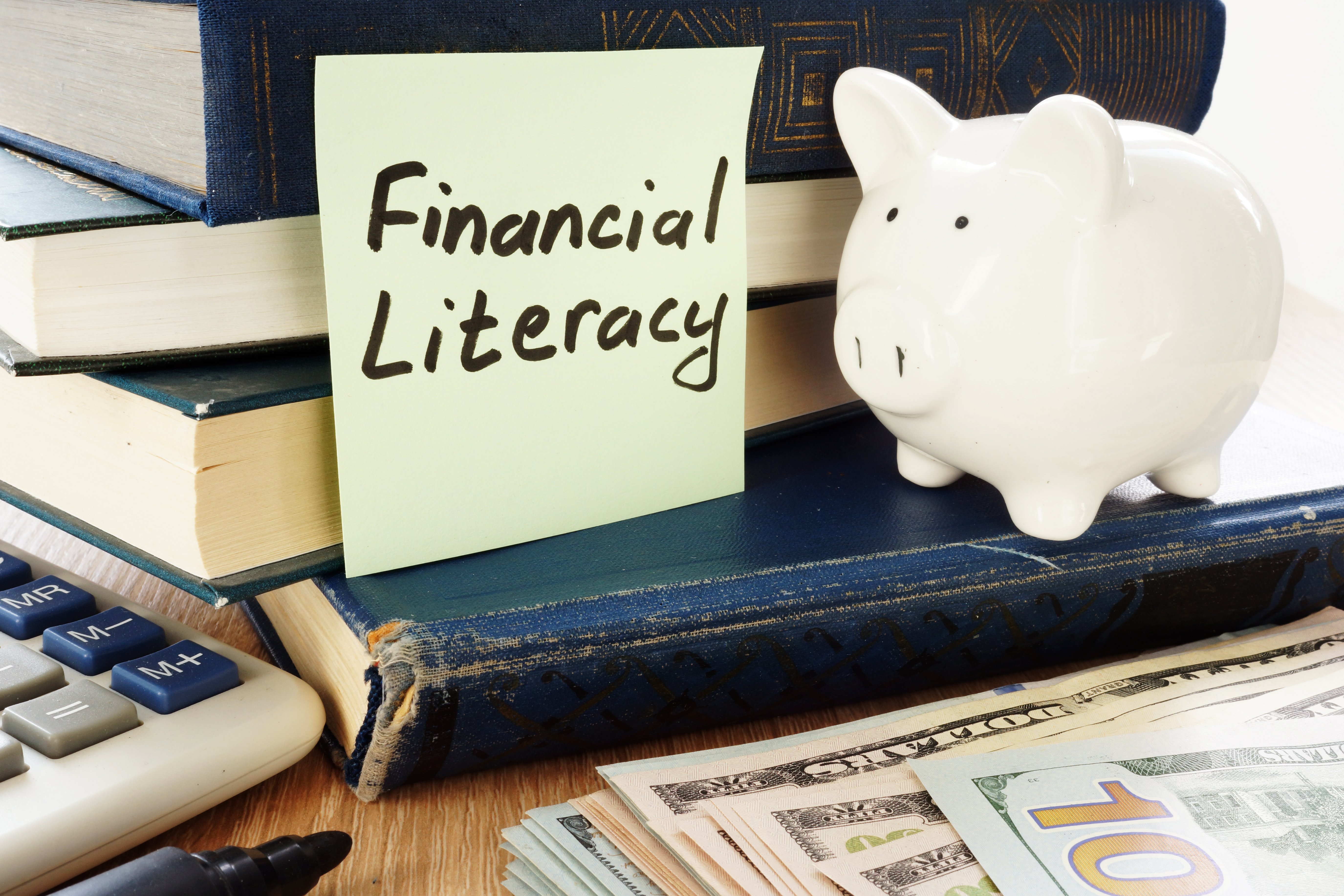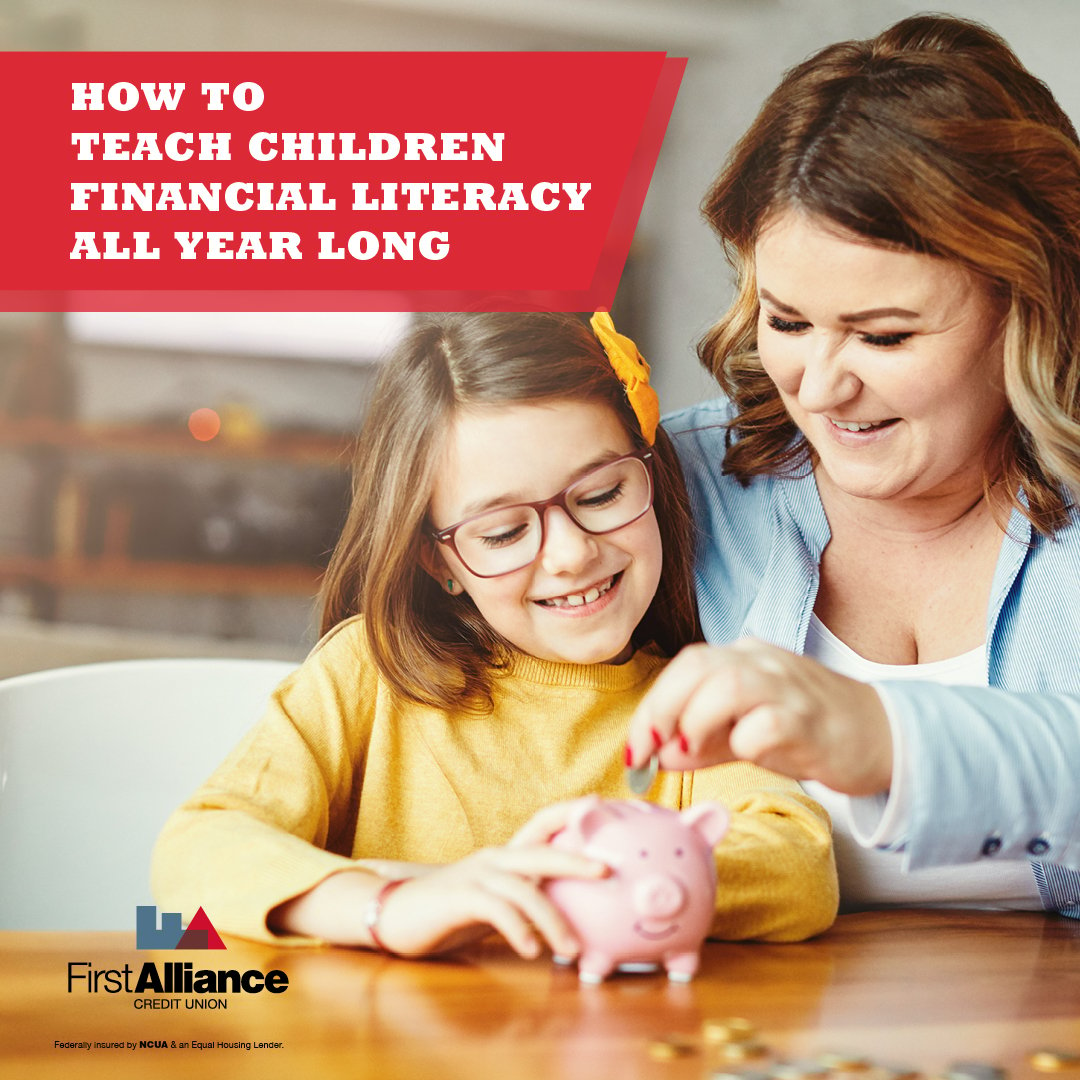5 Easy Steps To Financial Literacy For Beginners
Did you know that, according to one report, almost half of Americans make a New Year’s Resolution related to finance? If you’re one of those people,...

What is financial literacy and why is it important? Financial literacy is the ability to understand the important financial topics related to managing personal finances successfully. There are five key components you need to know and understand in order to make smart financial decisions throughout your life.
Financial literacy is simply knowing how to manage your money wisely. Money touches every aspect of our lives. From earning a paycheck, to making purchasing decisions, to planning for your future. Money is a tool that helps us get where we want in life, but only if you know how to use it successfully.
These startling statistics about financial literacy indicate that many people are severely lacking the financial knowledge they need to make good financial choices:
When people fall short in areas of financial literacy it leads to increased fear and anxiety in people lives, which isn’t healthy. This is why it is important to have a solid understanding the the five financial literacy core concepts.
Understanding these five financial areas will provide you the ability to gain control over your finances and feel confident in your financial decisions.
Knowing how to build and maintain a budget is the first step to becoming financially literate. This is the foundation to understanding your financial picture now and in the future. Creating a budget will allow you to know exactly how much money you have to work with to achieve your financial goals. Actively maintaining a budget allows you to prioritize your spending needs and wants in accordance with those goals.
Understanding how debt and credit can affect your finances is another key concept of financial literacy. The amount of debt you have directly impacts your credit score, which is turn directly impacts your ability to obtain many services, including being able to rent or buy a home. Additionally the more debt you carry the less money you have available to purchase necessities. If you understand how debt works, you can avoid falling into the credit cycle trap.
Once you understand credit and debt, you'll likely begin to understand this pillar of financial literacy as well. Interest rates, whether they are for loans or savings accounts, are important understand so you can avoid paying too much interest on a loan or not earning the maximum interest you can for your deposits. Interest rates can seem confusing on the surface, but even understanding the basic concepts such as compound interest, annual percentage rate vs annual percentage yield, and how your credit score can affect your interest, can make a huge difference in your ability to accurately asses your financial choices.
Having even a small sum of money saved can make a difference when unexpected expense creeps up. Having money set aside can often be the difference between financial devastation and a mere inconvenience. A solid understanding of the importance of saving money, and then actively doing so, creates a sense of financial security that quickly eliminates many fears and anxiety you have when it come to managing your money.
This is the final piece of the financial literacy puzzle, and it's one that many don't think about—protecting your personal information. Personal information is any information that someone could use to steal your identity, such as your social security number, address, or account login information. Once a fraudster has your private information they can use it to wreak havoc on your financial life, including opening and using credit cards in your name, stealing your tax refunds, or stealing your money out of your bank account. Knowing how to protect yourself from identify theft goes a long way to securing your financial future.
Financial literacy doesn’t mean you have to be an expert in all aspects of money, but it does require a willingness to learn how to manage money for yourself and know when it’s time to ask an expert for help or guidance.
At First Alliance Credit Union part of our mission is to help our members feel financially confident. It's why we write this blog, provide free online resources and tools, and produce the Good Money Moves podcast. If you're looking for personal guidance we offer that as well, talk with our experts today.

Did you know that, according to one report, almost half of Americans make a New Year’s Resolution related to finance? If you’re one of those people,...

April is Youth Financial Literacy month, and as part of this several credit unions, including First Alliance, are putting on programs to help...

We all know what financial instability is like—living paycheck to paycheck, trying to figure out which bills can and can’t be taken care of this...